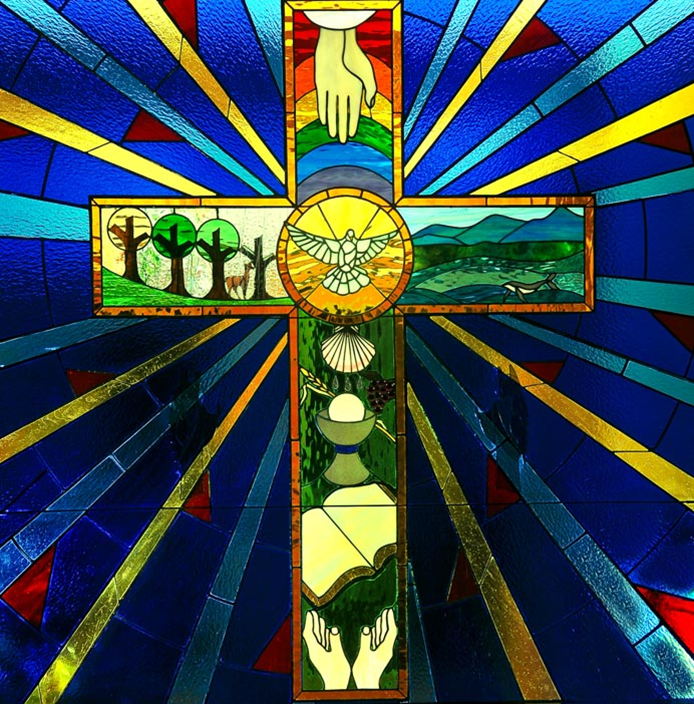If you are unable to worship in person this Sunday, please visit our Facebook page www.facebook.com/stmarksasheville for a live stream at 11:00 am. You do not need to have an account in order to watch our videos. Click here for the bulletin: Ordinary 1100 2021
Please note that we have moved back to seasonal bulletins for our worship services. The liturgy is on pages 2-10, and the readings and psalms for each Sunday are at the back, on pages 11-15. We also heartily encourage you to join us in singing the hymns! If you don’t have a hymnal at home, please click here: Hymns 6.20.21
Service music notes
Prelude: Jesus, Savior, Pilot Me, arranged by Christine Sullivan
Edward Hopper (1818-1888), pastor of the Church of Sea and Land in lower Manhattan, first published this hymn anonymously in “The Sailor’s Magazine” in 1871. It is interesting to note the feminine imagery for God in the second stanza. The tune was written by John Edgar Gould (1822-1875), a conductor, composer, and publisher of Gospel hymns.
Offertory: When Peace Like a River, arranged by Timothy Shaw
Lawyer and Prebyterian elder Horatio Spafford (1828-1888) was unable to join his family at the last minute on a trip from the United States to Europe. Halfway across the Atlantic, the ship collided with another vessel and sank in less than 12 minutes; 226 of her 313 passengers and crew drowned, including Spafford’s four daughters. According to later family accounts, he wrote this hymn “on the high seas, near the place where his children perished, on his way to Paris to meet his wife.” The tune is named for the ship, Ville du Havre. After being mistreated by their church family, the Spaffords moved permanently to Jerusalem. Bertha Spafford, born five years after the tragedy, spent her life there in social service and education, “saving children from starvation and disease, on behalf of Christians, Jews, and Muslims.”
Postlude: Eternal Father, Strong to Save, arranged by Bradley Sowash
English choirmaster William Whiting (1825-1878) wrote this text in 1860 for one of his students who was sailing to America. It was published the following year in “Hymns Ancient and Modern,” and has been widely used ever since. The tune is by John Bacchus Dykes (1823-1876), who also wrote the tune for “Holy, Holy, Holy, Lord God Almighty.” It is named “Melita,” an old name for the island of Malta, where St. Paul was shipwrecked.



